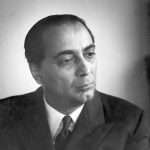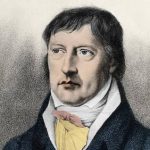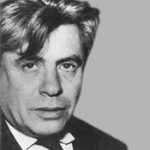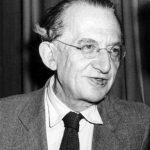 Cultural seismology–the attempt to record the shifts and displacements of sensibility that regularly occur in the history of art and literature and thought–habihually distinguishes three separate orders of magnitude. At one end of the scale are those tremors of fashion that seem to come and go in rhythm with the changing generations. To a second order of magnitude belong those larger displacements whose effects go deeper and last longer, forming those extended periods of style and sensibility which are usefully measured in centuries. This leaves a third category for those overwhelming dislocations, those cataclysmic upheavals of culture, those fundamental convulsions of the creative human spirit that seem to topple even the most solid and substantial of our beliefs and assumptions, leave great areas of the past in ruins or question an entire civilization or culture.
Cultural seismology–the attempt to record the shifts and displacements of sensibility that regularly occur in the history of art and literature and thought–habihually distinguishes three separate orders of magnitude. At one end of the scale are those tremors of fashion that seem to come and go in rhythm with the changing generations. To a second order of magnitude belong those larger displacements whose effects go deeper and last longer, forming those extended periods of style and sensibility which are usefully measured in centuries. This leaves a third category for those overwhelming dislocations, those cataclysmic upheavals of culture, those fundamental convulsions of the creative human spirit that seem to topple even the most solid and substantial of our beliefs and assumptions, leave great areas of the past in ruins or question an entire civilization or culture.
_______Malcolm Bradbury and James McFarlane, Modernism

Physicist Dr. Homi Jehangir Bhabha (1909 – 1966), India, circa 1950. He was largely responsible for the development of India’s atomic energy programme. (Photo by Dinodia Photos/Getty Images)
Nations, like narratives, lose their origins in the myths of time and only fully realize their horizons in the mind’s eye. Such an image of the nation–or narration–might seem impossibly romantic and excessively metaphorical, but it is from those traditions of political thought and literary language that the nation emerges as a powerful historical idea in the West. … A nation is a soul, a spiritual principle. Two things, which in truth are but one, constitute this soul or spiritual principle. One lies in the past, one in the present. One is the possession in common of a rich legacy of memories; the other is present-day consent, the desire to live together, the will to perpetuate the value of the heritage that one has received in an undivided form. Man does not improvise. The nation, like the individual, is the culmination of a long past of endeavors, sacrifice, and devotion. . . . A nation is therefore a large-scale solidarity, constituted by the feeling of the sacrifices that one has made in the past and of those that one is prepared to make in the future. It presupposes a past; it is summarized, however, in the present by a tangible fact, namely, consent, the clearly expressed desire to continue a common life. A nation’s existence is, if you will pardon the metaphor, a daily plebiscite, just as an individual’s existence is a perpetual affirmation of life.
Homi Bhabha, Nation and Narration
 Above all, by dramatizing the violent and destructive process by which these archaic societies are transformed by and incorporated into the modern world, these four novelists (Hardy, Conrad, Achebe, and Llosa) testify to the havoc wreaked upon individual human lives in the name of progress. The novelists I discuss are all citizens and beneficiaries of the modern world, but they nonetheless fell compelled to record for posterity the great costs, paid in blood and pain, the peoples around the world have rendered to settle accounts with history.
Above all, by dramatizing the violent and destructive process by which these archaic societies are transformed by and incorporated into the modern world, these four novelists (Hardy, Conrad, Achebe, and Llosa) testify to the havoc wreaked upon individual human lives in the name of progress. The novelists I discuss are all citizens and beneficiaries of the modern world, but they nonetheless fell compelled to record for posterity the great costs, paid in blood and pain, the peoples around the world have rendered to settle accounts with history.
Michael Valdez Moses, The Novel and the Globalization of Culture
 But in India, it [despotism] is normal: for here there is no sense of personal independence with which a state of despotism could be compared, and which would raise revolt in the soul; nothing approaching even a resentful protest against it, is left, except the corporeal smart, and the pain of being deprived of absolute necessaries and of pleasure. In the case of such a people, therefore, that which we call history is not to be looked for. … This [Hinduism] makes them incapable of writing history; all that happens is dissipated in their minds into confused dreams.
But in India, it [despotism] is normal: for here there is no sense of personal independence with which a state of despotism could be compared, and which would raise revolt in the soul; nothing approaching even a resentful protest against it, is left, except the corporeal smart, and the pain of being deprived of absolute necessaries and of pleasure. In the case of such a people, therefore, that which we call history is not to be looked for. … This [Hinduism] makes them incapable of writing history; all that happens is dissipated in their minds into confused dreams.
Georg Wilhelm Frederick Hegel, The Philosophy of History
 The novels of Balzac … best represent the values of the bourgeoisie: individualism, the thirst for power, money, and eroticism, which triumph over the ancient feudal values of altruism, charity, and love.
The novels of Balzac … best represent the values of the bourgeoisie: individualism, the thirst for power, money, and eroticism, which triumph over the ancient feudal values of altruism, charity, and love.
Goldmann, Lucien. Towards A Sociology of the Novel. London: Tavistock, 1975

Zentrlabild/Sturm
3.7.1952
Ausserordentliche Tagung des Weltfriedensrates vom 1.- 5.7.52 im Haus der VAB in Berlin
UBz:: Der ungarische Schriftsteller Prof. Georg Lukacz im Gespräch mit Stalinfriedenspreisträgerin Anna Seghers.
The novel is the epic of an age in which the extensive totality of life is no longer directly given, in which the immanence of meaning in life has become a problem, yet which still thinks in terms of totality. …The epic individual, the hero of the novel, is the product of estrangement from the outside world.
Georg Lukacs, The Theory of the Novel
